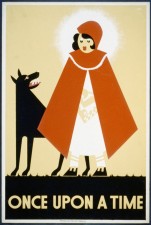Revisiting the Subjunctive Mood: Great for Persuasion
A perhaps often overlooked technique that can help your writing gain some persuasiveness is the subjunctive mood. It’s possible that you remember the subjunctive less from your English classes than from your foreign languages classes—at least that’s the case for me. When learning to conjugate verbs in another language, you’ll often bump up against the subjunctive.
Verbs have moods. According to Patricia Osborn in How Grammar Works: A Self-Teaching Guide 182 (2d ed. 1999), mood “simply means the attitude of the speaker toward the words being spoken.” In English grammar, there are three moods: the indicative, the imperative, and the subjunctive. The indicative mood is the most common and indicates that the speaker is conveying meaning. For example, I look forward to warmer weather is written in the indicative mood. The verb to look is properly conjugated to match the subject, I. (Although my example is in the present tense, the indicative mood works in all verb tenses.) The imperative mood is for giving commands. For example, Hurry up! is imperative. Again, the verb to hurry is properly conjugated for the understood subject, you.
The subjunctive, by contrast, “uses an out-of-the-ordinary verb form to call attention to something extraordinary” (Osborn, 183). It is, as Osborn labels it in her text, “The [m]ood of [p]ossibilities.”

 Once upon a time . . .
Once upon a time . . .